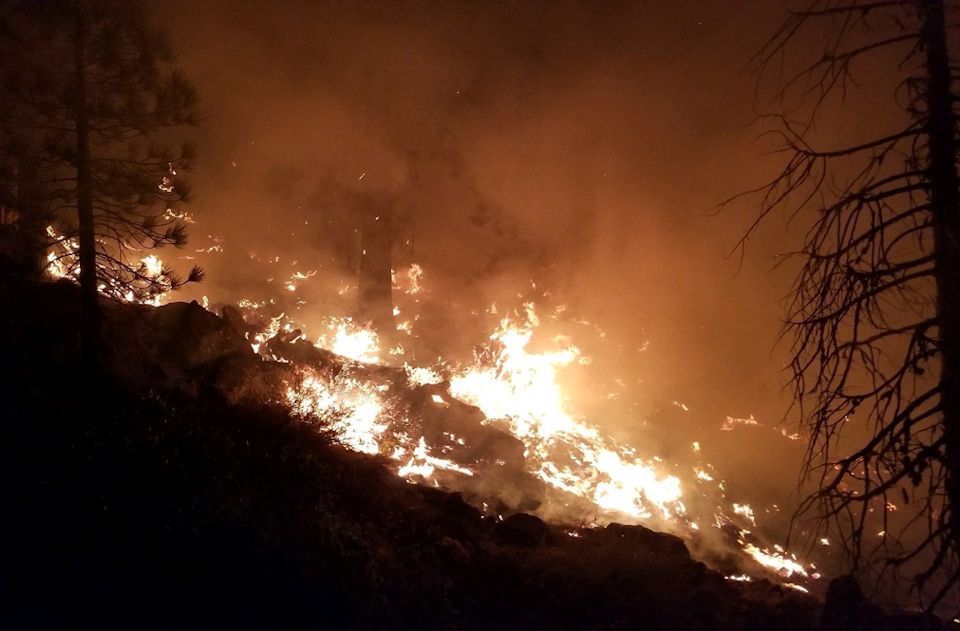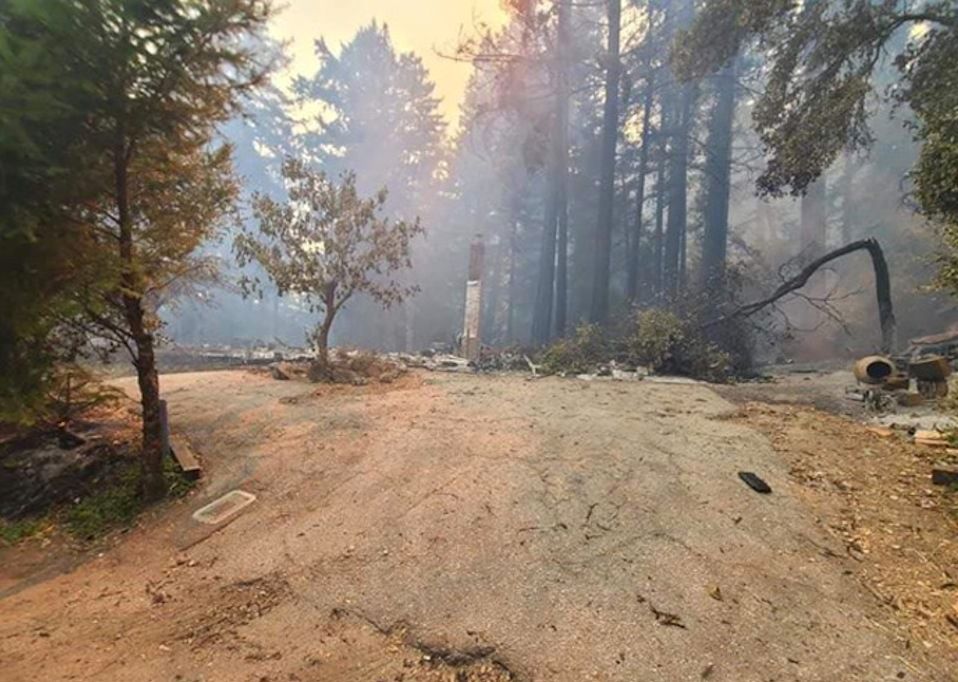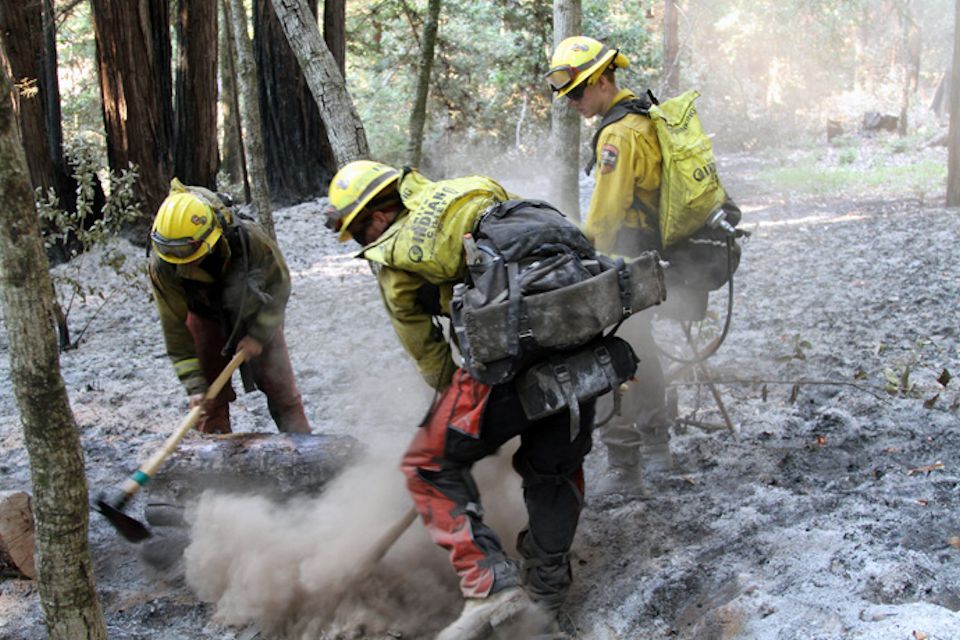Gifts to the United Methodist Committee on Relief’s U.S. Disaster Response and Recovery Advance #901670 support efforts to aid homeowners in the path of wildfire blazing in California and Oregon.
JOEY BUTLER
UM News
The wildfire crisis ravaging California for weeks took a dramatic turn and spread into the Pacific Northwest, feeding off dry conditions and strong winds.
The fires have led to at least 35 reported deaths, consumed more than 3 million acres in California, almost 1 million acres in Oregon, and destroyed entire towns in Washington.
Following a hurricane or tornado, the natural response for church disaster relief teams and volunteers is to spring into action immediately, descending on the affected area with whatever is needed — chainsaws, generators, bottled water, and food.
Such a response isn’t possible in a wildfire. Many are expected to burn for several more weeks before containment. Once the fires are extinguished, the Environmental Protection Agency must inspect the area for toxins before declaring it safe for homeowners or work crews, since many older homes could have lead paint or asbestos.
“That’s the big difference between fire and tornados or hurricanes: You can’t move in immediately,” said Judy Lewis, disaster relief coordinator for the California-Pacific Conference. “For a fire that’s going today, we may be able to get into those neighborhoods by November.”
That’s one reason Sonja Edd-Bennett, disaster relief coordinator for the California-Nevada Conference, said she’s not ready to receive non-local volunteers right now.
Her conference is working with National Voluntary Organizations Active in Disaster, a nonprofit association of disaster relief organizations, to help survivors of the CZU Lightning Complex fire in the Santa Cruz and San Mateo area. That fire started in August by lightning strikes, burned more than 80,000 acres, destroyed more than 1,400 buildings, and led to one death.

Edd-Bennett said the most urgent need is cash donations and wildfire buckets, a variation of the cleaning buckets promoted by the United Methodist Committee on Relief.
“We’ve got 500 buckets coming, and I’m hoping for 500 more,” she said. “People who are able to go back to their homes will need one as they return.”
On top of helping to clean, UMCOR-trained Early Response Teams serve as a caring presence when survivors go home, especially if their house has been lost.
“We’re beside them as support as they retrieve any valuables that may have survived,” Edd-Bennett said. “It’s important for most people to go back, though I’ve worked with some who were so traumatized that they never want to go back.”
Boulder Creek United Methodist Church is located in the area affected by the CZU fire, and the town of Boulder Creek was forced to evacuate. The Rev. Clyde Vaughn, the pastor, reported that several members’ homes would require thorough cleaning from smoke damage before being livable again and one family in the church lost their home entirely.
“It is a young family with two children. The tragedy is magnified because they do not have renter’s insurance, so our members are doing what they can to help them recover,” he said.
The church had already been worshipping online due to COVID-19, so now members tune in from wherever they are now staying — some as far away as Colorado.
At its first service after the evacuation, lay speaker Ted Bond preached on the psalms, which he said are often songs of lament where faithful people cry out in distress. He said it’s understandable to be sad, scared, even mad at God after such a tragedy.
“It’s OK to have these feelings, but I also encourage you to look for the surprise blessings. Has God been present to you in this time of distress?” he asked.

The coronavirus is another complication to the church’s standard response to disaster.
“We can’t do much right now because of COVID-19 and the state mandates we’re currently under,” said Lewis. “Normally, we’d have coordinated groups come in to help distribute necessities, but people can’t come pick them up due to the lockdown.”
Lewis also described the difficulty in housing evacuees. Area convention centers that typically serve as shelters have to operate at limited capacity, which also limits the support her teams can provide.
“Normally, we’d work with the kids, bring things to keep them occupied, encourage them to keep up their schoolwork,” she said. “They see Mommy and Daddy crying, and they don’t know what to do. We try to give a positive experience in a negative situation, and I feel bad we can’t do anything.”
Edd-Bennett said that even as the wildfire recovery effort is beginning, she’s also encouraging residents to prep their land for potential landslides. The area normally gets a lot of rain, and now that the fires have removed the vegetation, landslides are likely, which she considers “disasters upon disasters.”
Greater Northwest Area Bishop Elaine JW Stanovsky shared Edd-Bennett’s concern for what may lurk around the corner in what has already been a year filled with tension and trauma.
In a letter to her episcopal area, she wrote, “We call out to God, seeking mercy. Seeking relief. Seeking just one day when we do not feel danger near at hand, and it doesn’t feel like the weight of the world is on each of our shoulders.”
Though the recovery will be long and difficult, Lewis said bringing hope in a seemingly hopeless situation is exactly what the church is called to do.
“People need to see the face of the church; we want to bring hope … even if it’s just giving them a gas card or food,” she said.
Last Updated on November 9, 2023

